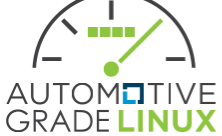Virtual Open Systems Newsletter
In this edition, Virtual Open Systems highlights its latest development activity for mixed-criticality in automotive, for API remoting to expose accelerated OpenGL/OpenCL functionality in guests and for an efficient virtualization of general purpose accelerators. In addition scientific disseminations are described for trusted architectures and coordinated scheduling in virtualized systems.
- Product development: API Remoting for GPU Virtualization
- Architecture research: Virtualization of General Purpose Accelerators
- Virtualization extensions: Coordinated process scheduling with KVM
- T-KVM dissemination: Virtual Open Systems at Cloud Computing 2015
- PoC news: PoC for Automotive Linux Summit 2015
Accelerators Virtualization, KVM extensions dissemination, IVI PoC for mixed-criticality virtualization

Virtual Open Systems carries on its development of a software solution for exposing and sharing hardware accelerators to virtual machines. The solution is based around the concept of remote API call execution, enabled by a novel architecture for fast zero copy VM to host communication. The technology will solve the problem of virtualizing accelerators which does not provide hardware support for virtualization. Examples of hardware accelerators which can be virtualized using this API remoting software stack are: GP/GPUs, multicore accelerators (OpenGL, OpenMAX, OpenCL, CUDA, etc.), DSPs and TPM solutions. The target market segments benefiting from this solution spans from automotive to embedded systems appliances, from research projects to HPC, including NFV Infrastructures where VNFs can be accelerated by this virtualization technology.

With its contribution to the EC SAVE FP7 project, Virtual Open Systems has designed a novel software infrastructure for efficient virtualization of next generation embedded accelerators (e.g., GPUs) that provide hardware support for virtualization. Such infrastructure exploits a combination between Linux/KVM and the leading open source contributions of Virtual Open Systems to VFIO. The goal of this solution is to directly assign to virtual machines the abstraction of a virtual accelerator through VFIO pass-through, which enables a nearly native performance experience to guest applications. Moreover no modifications are needed to device drivers, so that virtual machines can still use the software bundled with the accelerator as is.

Virtual Open Systems has extended to process scheduling, the work done in coordinated scheduling between a Linux host and KVM virtual machines. The problem of increased latency in virtualized systems is highlighted in a scientific paper "Towards Coordinated Task Scheduling in Virtualized Systems", submitted for the The Ninth International Conference on Advanced Engineering Computing and Applications in Sciences, ADVCOMP 2015. Additionally the coordination scheduling mechanism has been improved in KVM and in the CFS scheduler, to provide a fine-grained scheduling policy that increases responsiveness and results to lower latency of guest applications.

Virtual Open Systems presents the scientific paper "T-KVM: A Trusted architecture for KVM ARM v7 and v8 Virtual Machines" at the Sixth International Conference CLOUD COMPUTING 2015 in Nice (France), awarded as best paper. T-KVM is a novel hypervisor architecture based on KVM, TrustZone, GlobalPlatform TEE, SELinux and Secure boot technologies, designed to provide isolation between guest applications and critical security functions. In the paper, the virtualization of the GlobalPlatform TEE APIs and a shared memory mechanism between guests and the ARM Secure world are described along with a set of benchmarks performed on the ARMv8 Juno development board. Such technologies are of interest for future trusted application frameworks enabling car-connected objects, but also for securing VNFs in Networking Functions Virtualization (NFV) infrastructures.

As partner of the EC DREAMS project activity, Virtual Open Systems has planned a contribution to the Automotive Linux Summit 2015 with a proof of concept (PoC) showcasing virtualized AGL/Genivi guests, along with a Real-Time Operating System on the same hardware multicore platform, to address a complex mixed-critical Automotive In-Vehicle Infotainment (IVI) software stack solution. Such a highly integrated software stack, executed in multi-core heterogeneous ARMv8 SoCs, based on KVM KVM hypervisor and TrustZone, benefits from a multiple OS high performance monitor layer developed by Virtual Open Systems. It is designed to enhance the isolation of the applications running in the virtual machines, while enabling the secure execution of RT and critical services. This solution is meant to support the Automotive market trend where safety ECUs are expected to be merged with IVI on a single multicore heterogeneous SoC platform.
- Newsletter 2013 09
- Newsletter 2014 03
- Newsletter 2014 09
- Newsletter 2016 03
- Newsletter 2015 09
- Newsletter 2017 09
- Newsletter 2018 03
- Newsletter 2016 09
- Newsletter 2020 09
- Newsletter 2017 03
- Newsletter 2018 09
- Newsletter 2019 03
- Newsletter 2023 12
- Newsletter 2019 09
- Newsletter 2020 03
- Newsletter 2021 03
- Newsletter 2020 09 jp 日本語
- Newsletter 2022 09
- Newsletter 2022 03
- Newsletter 2021 03 jp 日本語
- Newsletter 2021 09
- Newsletter 2021 09 jp 日本語
- Newsletter 2024 06
- Newsletter 2022 09 jp 日本語

 VOSySofficial
VOSySofficial




